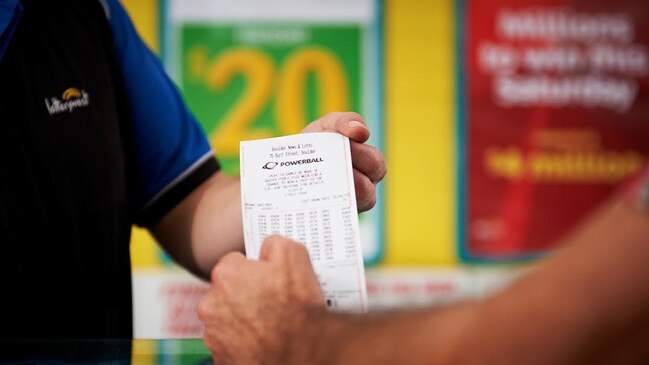JobKeeper payments spur lottery ticket sales: JPMorgan
Australians snapping up tickets despite cutting back on day-to-day non-essential spending.

JobKeeper payments have provided a boon for lotto operators, with Australians snapping up tickets despite cutting back on day-to-day non-essential spending.
Analysts at brokerage JPMorgan noted Australians have shifted from gaming to lotteries, while existing players were spending more on tickets.
The higher spend has come about even without the prospect of mega-jackpots, which is a key driver of sales.
“JobKeeper will (and has) inject an artificially buoyed level of turnover across the industry as alternative discretionary outlets have been lacking,” the analysts said in a note to clients.
“Lotteries is well-flagged as thriving across smaller jackpot levels since March.”
Powerball’s $15m jackpot - which is considered a mid-sized jackpot - in mid-June performed slightly better compared to the historical average, as customers continued to switch from TAB to online, and as poker machine players pivoted to lotteries due to the COVID-19 restrictions.
Existing lottery customers were also spending more tickets, JPMorgan said.
June lottery jackpot data continued to show that smaller Powerball and OZ Lotto draws had outperformed their historical averages, the analysts observed.
“We estimate that the second half average jackpot value will be $31m, 21 per cent down on the previous corresponding period,” they said.
Still, the greater-than-normal interest in gaming isn’t likely to boost the results of lotteries operator Tabcorp too much, and while JPMorgan upgraded its full-year earnings estimate for the company, analysts stopped short of upgrading their underweight recommendation on the stock.
“Although we believe there is significant capital being injected into gambling markets, we remain cautious on the range of outcomes associated with net yield, post generosities,” they said.
JPMorgan said Tabcorp remains leveraged to declining segments of the wagering industry, including retail, tote and racing, and the company’s exposure to growth segments such as fixed-odds, online and sport is shrinking as corporate bookmakers gain market share.







To join the conversation, please log in. Don't have an account? Register
Join the conversation, you are commenting as Logout